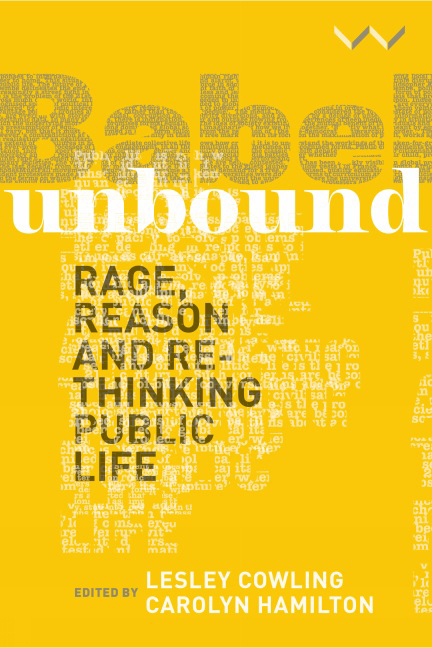Book contents
- Frontmatter
- Contents
- Acknowledgements
- Introduction
- Chapter 1 Rethinking Public Engagement
- Chapter 2 Tracing Public Engagements in Visual Forms
- Chapter 3 Media Orchestration in the Production of Public Debate
- Chapter 4 Fluid Publics: The public-making power of hashtags in digital public spaces
- Chapter 5 ‘Now We See Him, Now We Don’t’: The media and the ‘Black Pimpernel’
- Chapter 6 Archive and Public Life
- Chapter 7 Iconic Archive: Timbuktu and its manuscripts in public discourse
- Chapter 8 The Politics of Representation in Marikana: A tale of competing ideologies
- Chapter 9 Art-Rage and the Politics of Reconciliation
- Chapter 10 Anger, Pain, and the Body in the Public Sphere
- Contributors
- Index
Chapter 10 - Anger, Pain, and the Body in the Public Sphere
Published online by Cambridge University Press: 10 September 2020
- Frontmatter
- Contents
- Acknowledgements
- Introduction
- Chapter 1 Rethinking Public Engagement
- Chapter 2 Tracing Public Engagements in Visual Forms
- Chapter 3 Media Orchestration in the Production of Public Debate
- Chapter 4 Fluid Publics: The public-making power of hashtags in digital public spaces
- Chapter 5 ‘Now We See Him, Now We Don’t’: The media and the ‘Black Pimpernel’
- Chapter 6 Archive and Public Life
- Chapter 7 Iconic Archive: Timbuktu and its manuscripts in public discourse
- Chapter 8 The Politics of Representation in Marikana: A tale of competing ideologies
- Chapter 9 Art-Rage and the Politics of Reconciliation
- Chapter 10 Anger, Pain, and the Body in the Public Sphere
- Contributors
- Index
Summary
South Africa is going through a moment of powerful political rupture. This rupture is not so much with the apartheid or colonial past as with the immediate democratic past, which has failed to deliver on its promises of equality for all and lacks a credible rupture with the apartheid past. South Africa's rate of protest since 1994 has been alarmingly high, underlining how dissatisfied people are with the post-apartheid condition and how little they trust the process of waiting for government to deliver on its promises. Although students at formerly black universities have been protesting for years, since 2015 university students on other campuses have joined this rumbling revolution and explicitly made ‘decolonisation’, racism and dealing with the past very much part of the protest discourse. While these sites of protest and struggle are crucial for understanding the dissatisfaction with the continuance of the apartheid past, the public sphere is as serious and important a site of struggle for agenda-setting and new ways of knowing, talking, paying attention and getting a hearing.
All speech works from a regime of truth. According to Michel Foucault: ‘ “Truth” is to be understood as a system of ordered procedures for the production, regulation, distribution, circulation and operation of statements. “Truth” is linked in a circular relation with systems of power which produce and sustain it and to effects of power which it induces and which extend it. A “regime” of truth … The political question, to sum up, is not error, illusion or alienated consciousness or ideology; it is truth itself.’ Within the current political battles (for recognition and attention, for education, for proper services, for full citizenship and humanity), we also see a battle to change the regimes of truth that enable speech, to outlaw some types of speech and introduce others. We also see a powerful resurgence of racist, misogynist, fascist speech rooted in an older regime of truth (which until now has been somewhat silenced by the regimes of ‘constitutional democracy’ and ‘human rights for all’). Importantly, the often unspoken rules of engagement in the public sphere – which have relied on common-sense notions of allowing everyone a voice, ‘playing the ball, not the man’, ‘raising the quality of the argument, not shouting louder’, and so on – are being tested strenuously.
- Type
- Chapter
- Information
- Babel UnboundRage, Reason and Rethinking Public Life, pp. 239 - 260Publisher: Wits University PressPrint publication year: 2020



